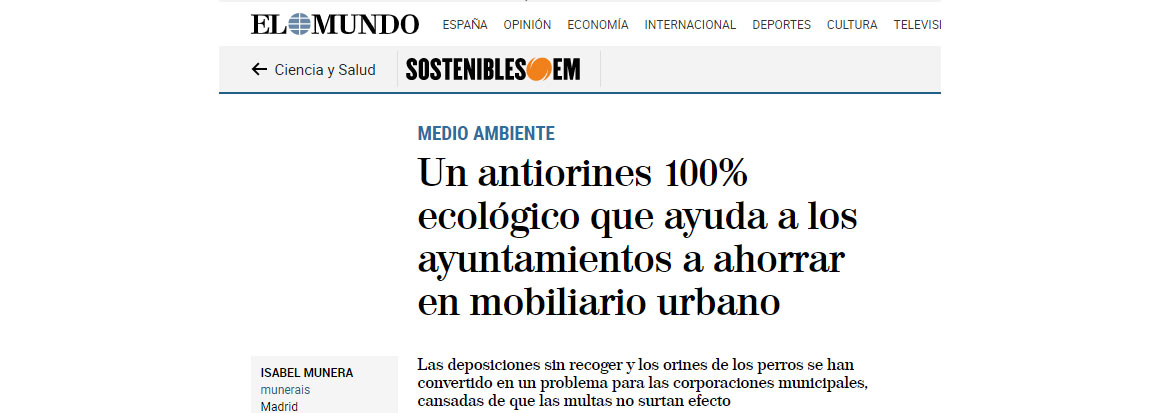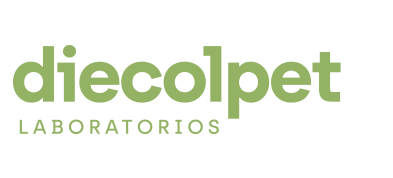
Uncollected droppings and dog urine have become a problem for municipal corporations, tired of fines that have no effect.
They accompany us, brighten our lives, help us, detect illnesses, search for drugs or explosives and in return they demand nothing. But we don’t always live up to them and, sometimes, lack of civility causes them to grab negative headlines and to be talked about not for all they give us but for what they litter.
In Spain there are already more than 13 million registered pets, according to data from the Spanish Network for the Identification of Companion Animals (Reiac), of which 93% are dogs, 6% are cats, and the rest are mainly rabbits. In fact, it is estimated that there are already more pets than children under 15 years of age.
The increase in the number of dogs is of concern to municipalities, which have to face significant costs in cleaning (for the collection of droppings on sidewalks and gardens) and in urban furniture, due to the corrosion caused by urine. Dissuasive fines do not seem to have an effect on irresponsible owners. And there are those who use products to deter dogs that are not only prohibited but also toxic, such as sulfur.
HIGH COSTS FOR MUNICIPALITIES
According to the Valencian City Council of Xirivella, which has carried out a study on this problem, “a medium-sized dog generates 400 grams of waste per day (12 kilos after a month) and, in addition, urine causes damage to street furniture, which means significant costs for the Consistory. To give you an idea, a litter garbage can costs around 120 euros, a bench, 180 euros, or a street lamp, 330 euros.
This problem was encountered on a smaller scale by the Asturian David Hevia. And after months of research he managed to find a formula that is harmless for the furry ones, but that achieves its objective: that they do not urinate or relieve themselves where we do not want them to do so, such as lampposts, traffic lights, store and house fronts, sidewalks or on the wheels of parked cars and motorcycles…
“My wife and I bought a house in a small village in Asturias. The house had been practically abandoned and all the dogs in the village went there to relieve themselves. I didn’t want to have problems with the neighbors because I had just arrived and, besides, I was coming from the city and they already saw me as a strange guy,” he confesses with a laugh. So he set to work to come up with an alternative solution, especially since he was about to become a father and the little one would spend all his time on the floor touching everything.
TOXIC PRODUCTS
As a good chemist, he became interested in all the products on the market to stop dogs from relieving themselves, but they all contained toxic and carcinogenic products.
So he set up a “Breaking Bad”-style laboratory, and like Walter White spent entire afternoons until he found the perfect formula. “I started experimenting with natural products until I hit upon the recipe a year and a bit later,” he explains. “I tried it and saw how it worked. The dogs smelled the area, but they didn’t pee or relieve themselves.” But his efforts didn’t end there. Over the next few months, he continued to improve the formula to make it last longer in the ground.
Together with a friend, he realized that this product could have an economic profitability, and in 2018 they launched a real market prospecting: they offered the anti-purrs to pet stores and were asking customers for their opinion. “If someone told us it hadn’t worked, we’d go to their house to see what had happened and it turned out they weren’t using it right,” he says.
And having seen the good reception of his natural antiorines, a week before the state of alarm was decreed, Hevia rode along with Vanesa Fernandez y Sergio Fernandez Diecolpet, a research and development laboratory specializing in the design of veterinary products for the care of pets, and in which care for nature is very present, since only “natural and ecological ingredients” are used, he points out.
But the pandemic arrived and they had to stop, although someone as restless as Hevia could not do it all. “That time was good for us to develop other products. And by the end of the year, in addition to the anti-pimple product (which also works with cats), we had an ecological shampoo specially designed for pets with atopic dermatitis or sensitive skin, a cleaner for the paws and tail after a walk and another to disinfect textiles, toys or the dog’s bed”.
Although initially their main market was specialized pet stores, they soon realized that the product could also be useful to municipalities.
PROTECT CRITICAL POINTS
“We realized that local governments had a very big problem with dog urine and dog feces. There are many uncivic people and the pee also causes corrosion and damages the urban furniture. With our product, municipalities can save a lot on cleaning and furniture replacement,” he explains.
For this reason, they have approached several Asturian municipalities that have shown interest in their star product, especially to protect critical points such as monuments, street furniture or children’s playgrounds.
“Our anti-pimple is the only one on the market with Ecoitel seal (totally ecological), with 100% effectiveness to prevent dogs from urinating in the places we do not want and that, in addition, does not affect the health of dogs or deteriorate the environment. The dog smells it, but it doesn’t mark in that place,” says this chemist and associate professor at the University of Oviedo.
Aware that the pet market is a growing market, in the future they would like their products to be available not only in specialized channels (pet stores, veterinary centers) but also in large hypermarkets. But always faithful to its philosophy: “Preserve the natural environment”.



